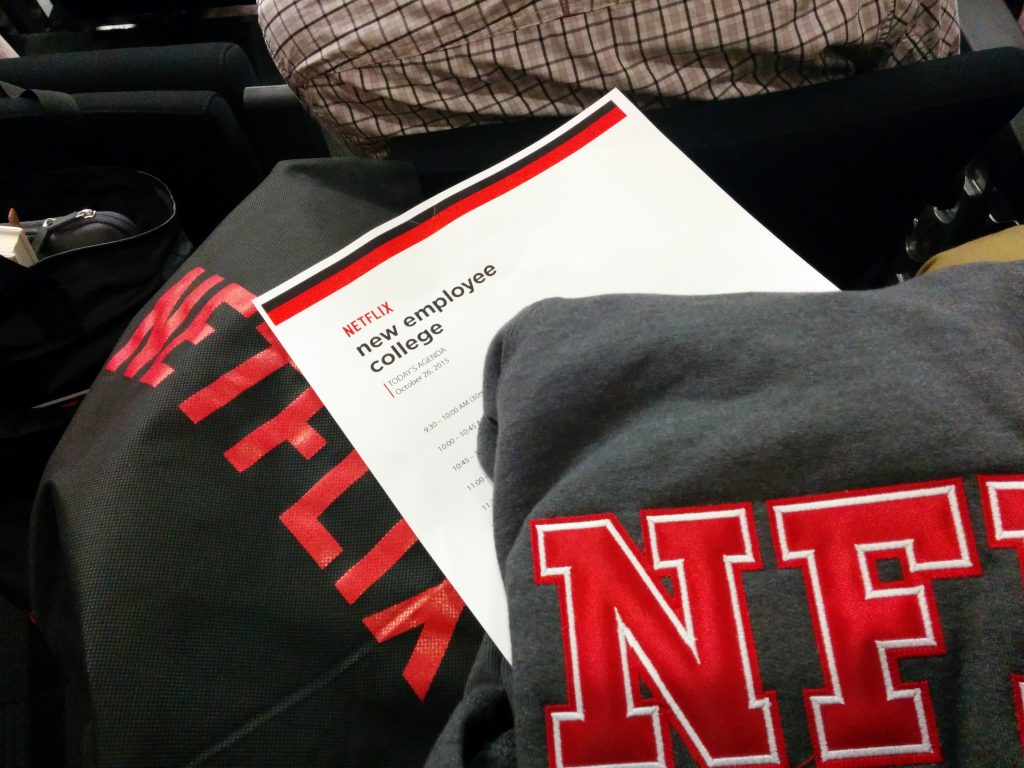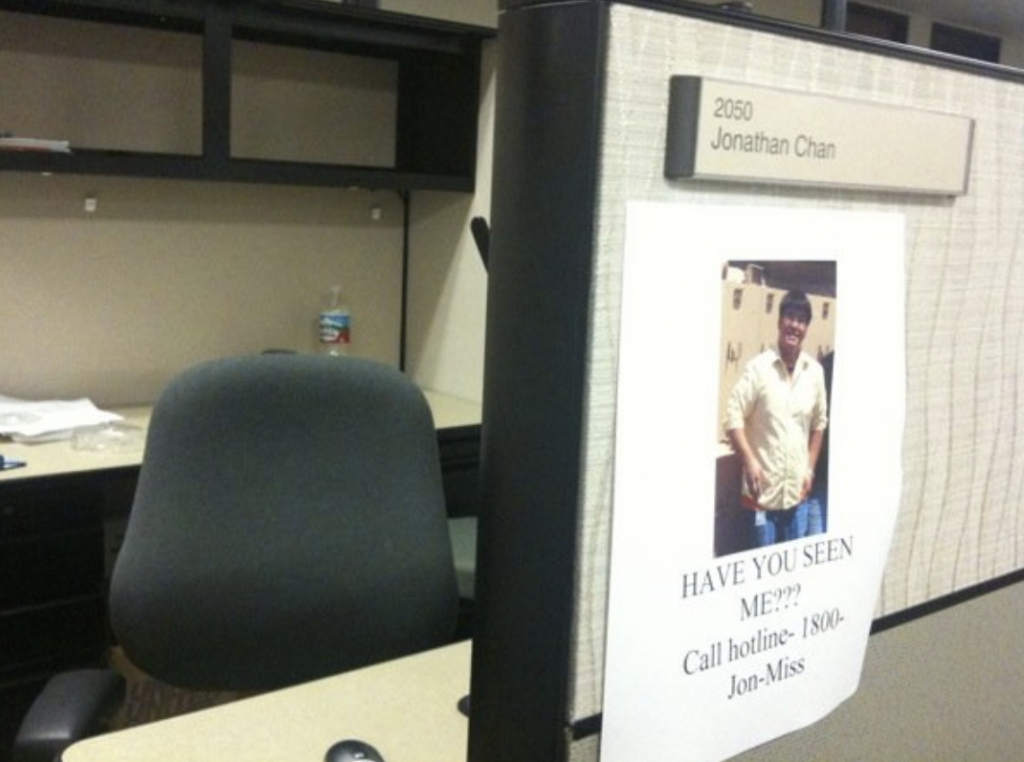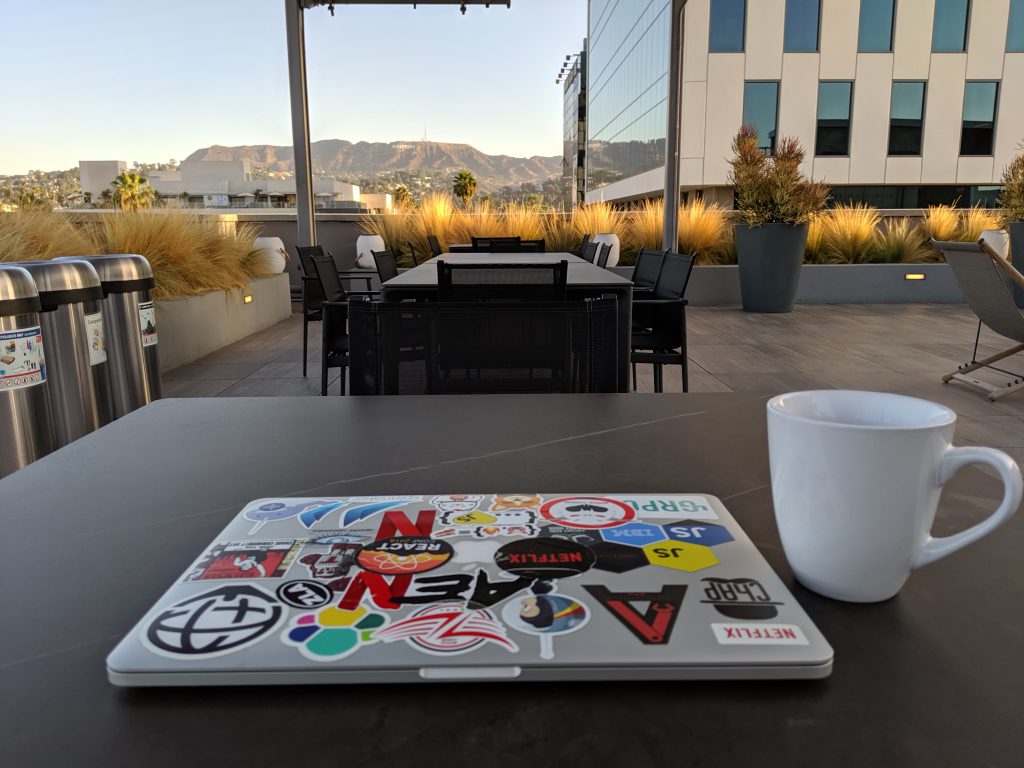On Friday, September 8th, I celebrated my 8 year Netflix work anniversary. I consider myself to be extremely fortunate, lucky, and privileged getting to say Netflix is my employer.

Reflecting back on my experiences so far, I wanted to share more broadly, the Serendipity (shameless plug for my company!) that have guided me thus far in my career and not only at Netflix.
This post is meant for folks wondering, “What to do next?”, “Where do I get a job?”, or “What company do I apply to?”
Cube Life

I was never one of those people going through high school or college, that knew exactly what I wanted to do or who I wanted to be. The only thing I really wanted to do was work with technology and computers, and make enough money to have hobbies and buy nice things. I distinctly remember I dreaded the thought of sitting in a cube farm all day.
It took me a while to really understand and figure out what problems interested me and what I was proficient at. At the same time, it also took me a while to understand where to apply my focus and find industries that resonated with my skills and education.
With that said, I started using the the framework below, crafted through lots of trial and experiences.
The Framework
- Determine your personal values, ethics, and goals.
- Find interesting industries that align with your personal values.
- Identify the problems those industries are facing or will have to face in the next 2, 5, or 10 years.
- Identify the companies that are solving the interesting problems in those resonating industries.
- Identify the priorities in your personal life (health, career, family, lifestyle, income).
- Identify the priorities in your professional life (challenges you enjoy, work culture, responsibilities, income).
- Determine the intersection of your personal and professional priorities.
- Continued self assessment.
Values
As you progress through your career, it’s important to define your values and how you personally define success.
The definition of success means different things to different people: climbing the corporate ladder, parenthood, giving back to community, having time to pursue hobbies, earning buckets of money, maybe all of the above!
What do you actually value out of life and where do you willingly want to spend your time? That’s what you value.
By determining your values, which will change over time, you can better guide and plan your career decisions. As the seasons of your life change, these values will also change – meaning it may be time to shift your career focus.
Having your values defined keeps you true to yourself and provides a framework to determine, “Does this job add value to my life or help me live my values?” or “Is this the right employer for me, right now?”
Industry
Finding an industry that resonates and aligns with your values, will help provide focus. This is very different than the adage of do something you’re passionate about. Passion like any emotion, even curiosity, fades. Focus though, is an invaluable skill and trait that stays sharp as a tool as long as you practice.
Often times, when planning a career, people lean towards a certain set of companies or brands that hold some special gravity. There’s nothing wrong with this approach as long as you understand, why are you choosing those companies. It’s often challenging to find a definitive answer to, “Why this company?” but throughout the various seasons of your career, it’s extremely important to answer this question. Gravitating towards a brand-name company is easy but it may not contribute to your short, medium, and long term career and personal goals / values.
This is where focusing on a specific industry or set of industries is important. By aligning your values with an industry, it suddenly becomes very clear which direction you should drive towards. Focus allows you to eliminate the noise and perceived glamour of a brand-name company. Focus grants you the privilege of really understanding an industry, understanding yourself, and how a career fits into your life.
With a handful of industries in view, focus shifts your perspective. You can now build a life around an industry instead of your life being built around a single company.
Opportunities
Now with a set of industries in hand and your new found focus – it’s time to search for unique problems and opportunities those industries are facing.
Identifying the unique problems an industry faces will help you filter which employers or companies are serving those unmet needs or growing problem spaces and what skills you need to learn and hone.
Because these areas have unmet needs, we’ve opened the door for opportunity. I hesitate to use a start up cliché but this is what start ups do best – providing solutions for unsolved problems (most of the time…).
Another facet of this “problem-hunting” – consider the time horizon of your goals and the time horizon when these companies may be able to deliver a solution. These two should have some overlap. Why the overlap? Having similar time horizons means you can plan for how you want to grow your skills within that industry.
Let’s go to an example. A few questions that often comes up when I speak to inexperienced engineers include:
- What programming language should I learn?
- What framework should I pick up?
Without going into a long-winded explanation, by understanding what problems an industry faces, you can begin to infer the tools, technologies, and practices needed to solve these problems. The question of what programming language to learn suddenly becomes less important when perhaps, that industry may invent something organically.
Now the questions and focus become:
- What are the companies that will enable me through training, experience, or exposure, to build solutions in the next 2, 5, or 10 years?
- What skills do I need to learn to be successful solving problems in this space?
Having anguish over that programming language or tool won’t make a difference, when your particular industry may create something totally new in a few short years. Instead, you can look to the long term to determine the skills, tools, and experiences you need to reach your definition of success in a chosen industry.
Closing

All of this sounds like an academic research paper doesn’t it? Well. It is.
This whole process involves a lot of introspection, research, conversation, and honesty. As much as I personally crave spontaneity outside of my professional career, I’m not the type of person to pick a random direction in my career and leave the rest to chance. I’m also not the type of person where I obsess over sticking to a plan. I’m content with leaving room for serendipity and discovery.
The point of this whole exercise is to share with you, how I’ve built my career, and share insight into my decision making process. It’s written to help guide you along a sustainable and fulfilling career.
When looking at one’s career in hindsight or planning for the future, it’s important to realize that these decisions, goals, and adjustments all take a lot of time, often played out over years and in some cases, decades.
By shifting your perspective to be longer-term and having some focus, you begin asking yourself different questions. Hopefully, you aren’t caught up in the details of which company has the largest IPO possibility or what programming language you should learn next. Your perspective should be what opportunities, skills, and experiences can you gather to reach your definition of success, which hopefully overlaps with your lifestyle values.
As I look to the next chapter of my career, you can bet I’ll be sitting down to ponder, plan, and execute on this framework. Remember to focus on the long-term, enjoy the short-term, and learn a lot, as you gain the experiences you need to build a long-lived career in whatever industry you’ve chosen.